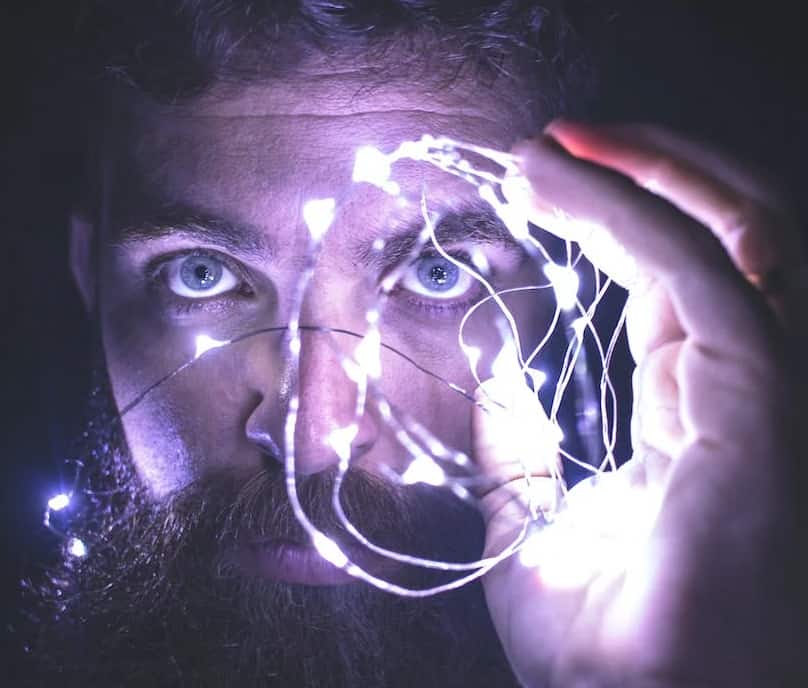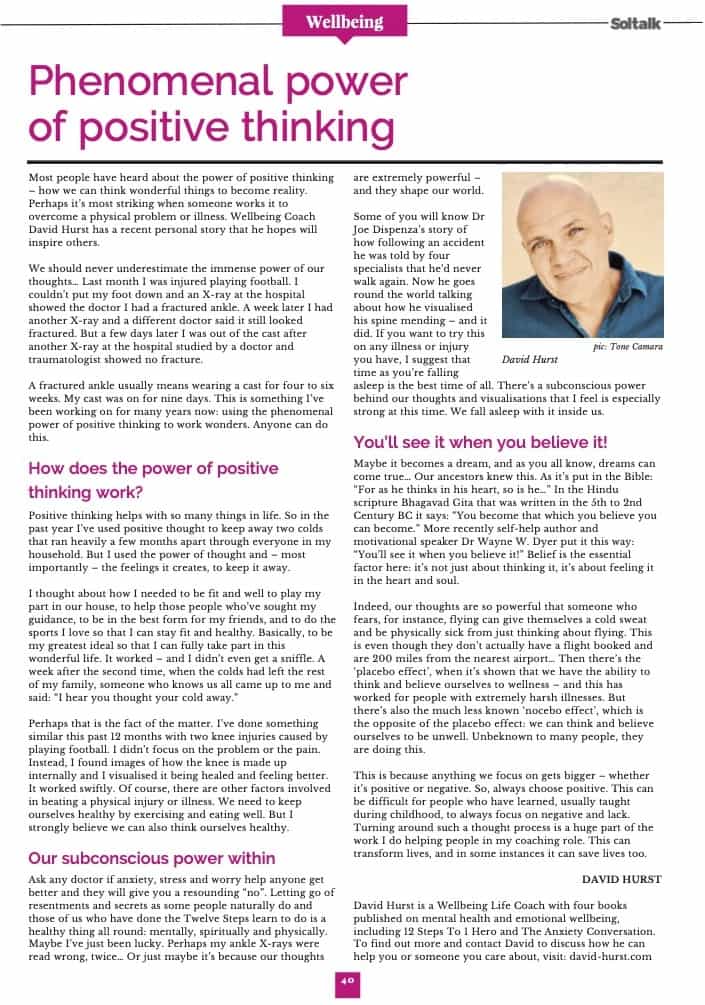Phenomenal power of positive thinking

We should never underestimate the immense power of our thoughts… Last month I was injured playing football. I couldn’t put my foot down and an X-ray at the hospital showed the doctor I had a fractured ankle. A week later I had another X-ray and a different doctor said it still looked fractured. But a few days later I was out of the cast after another X-ray at the hospital studied by a doctor and traumatologist showed no fracture.
A fractured ankle usually means wearing a cast for four to six weeks. My cast was on for nine days. This is something I’ve been working on for many years now: using the phenomenal power of positive thinking to work wonders. Anyone can do this.
How does the power of positive thinking work?
Positive thinking helps with so many things in life. So in the past year I’ve used positive thought to keep away two colds that ran heavily a few months apart through everyone in my household. But I used the power of thought and – most importantly – the feelings it creates, to keep it away.
I thought about how I needed to be fit and well to play my part in our house, to help those people who’ve sought my guidance, to be in the best form for my friends, and to do the sports I love so that I can stay fit and healthy. Basically, to be my greatest ideal so that I can fully take part in this wonderful life. It worked – and I didn’t even get a sniffle. A week after the second time, when the colds had left the rest of my family, someone who knows us all came up to me and said: “I hear you thought your cold away.”
Perhaps that is the fact of the matter. I’ve done something similar this past 12 months with two knee injuries caused by playing football. I didn’t focus on the problem or the pain. Instead, I found images of how the knee is made up internally and I visualised it being healed and feeling better. It worked swiftly. Of course, there are other factors involved in beating a physical injury or illness. We need to keep ourselves healthy by exercising and eating well. But I strongly believe we can also think ourselves healthy.
Our subconscious power within
Ask any doctor if anxiety, stress and worry help anyone get better and they will give you a resounding “no”. Letting go of resentments and secrets as some people naturally do and those of us who have done the Twelve Steps learn to do is a healthy thing all round: mentally, spiritually and physically. Maybe I’ve just been lucky. Perhaps my ankle X-rays were read wrong, twice… Or just maybe it’s because our thoughts are extremely powerful – and they shape our world.
Some of you will know Dr Joe Dispenza’s story of how following an accident he was told by four specialists that he’d never walk again. Now he goes round the world talking about how he visualised his spine mending – and it did. If you want to try this on any illness or injury you have, I suggest that time as you’re falling asleep is the best time of all. There’s a subconscious power behind our thoughts and visualisations that I feel is especially strong at this time. We fall asleep with it inside us.
You’ll see it when you believe it!
Maybe it becomes a dream, and as you all know, dreams can come true… Our ancestors knew this. As it’s put in the Bible: “For as he thinks in his heart, so is he…” In the Hindu scripture Bhagavad Gita that was written in the 5th to 2nd Century BC it says: “You become that which you believe you can become.” More recently self-help author and motivational speaker Dr Wayne W. Dyer put it this way: “You’ll see it when you believe it!” Belief is the essential factor here: it’s not just about thinking it, it’s about feeling it in the heart and soul.
Indeed, our thoughts are so powerful that someone who fears, for instance, flying can give themselves a cold sweat and be physically sick from just thinking about flying. This is even though they don’t actually have a flight booked and are 200 miles from the nearest airport… Then there’s the “placebo effect”, when it’s shown that we have the ability to think and believe ourselves to wellness – and this has worked for people with extremely harsh illnesses. But there’s also the much less known “nocebo effect”, which is the opposite of the placebo effect: we can think and believe ourselves to be unwell. Unbeknown to many people, they are doing this.
This is because anything we focus on gets bigger – whether it’s positive or negative. So, always choose positive. This can be difficult for people who have learned, usually taught during childhood, to always focus on negative and lack. Turning around such a thought process is a huge part of the work I do helping people in my coaching role. This can transform lives, and in some instances it can save lives too.
My article for Soltalk magazine.

